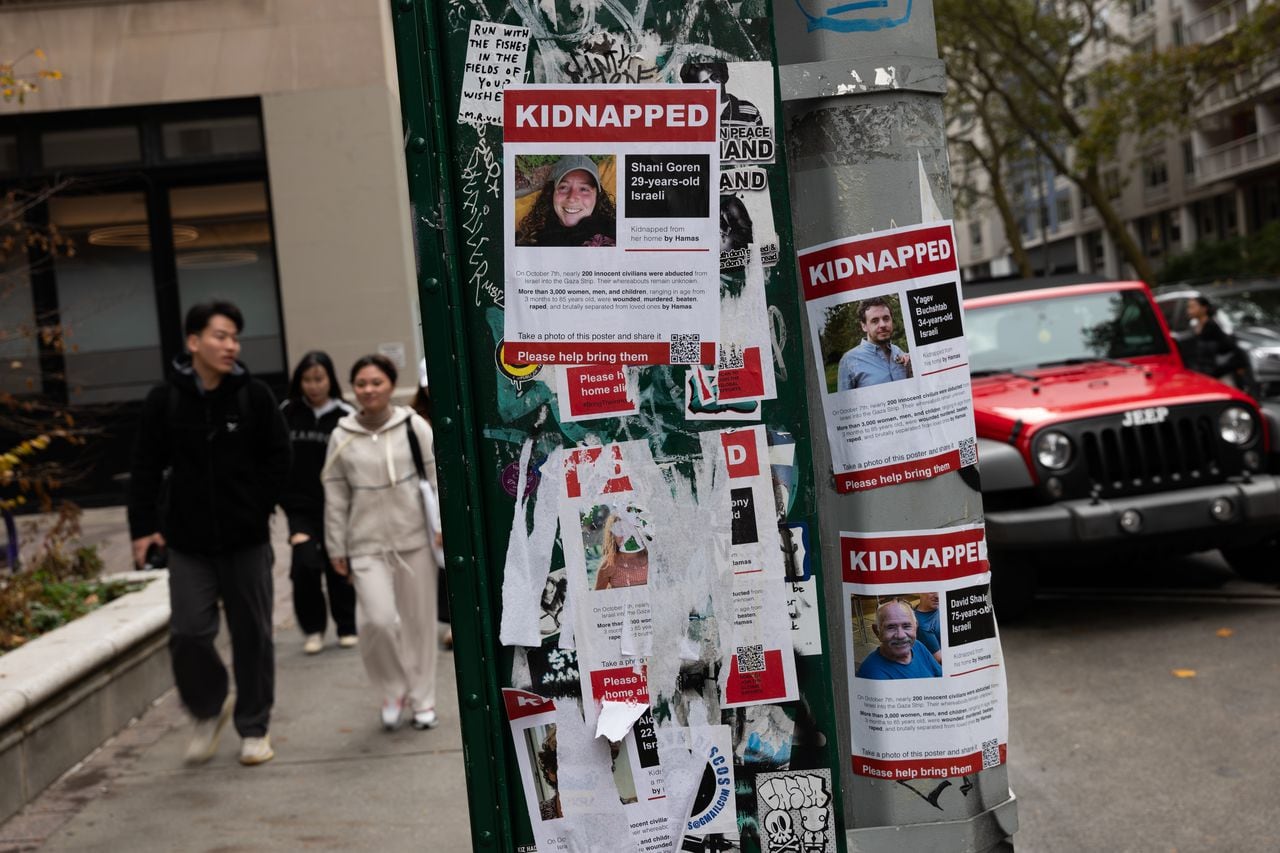Hate incidents rise on college campuses in wake of Israel-Hamas war
An Arab Muslim student at Stanford was struck by a vehicle on Nov. 3 in a reported hit-and-run in which the driver was said to be yelling obscenities.
That same day, at the University of Massachusetts, Amherst, a Jewish student was punched and their Israel flag spat on during a vigil organized by the school’s Hillel organization.
Since the Israel-Hamas war began on Oct. 7, colleges and universities across the country have reported a surge of attacks that appear to be motivated by hate. Some students have expressed feeling uneasy on campus and world leaders and U.S. politicians alike have urged schools to maintain student safety as tensions rise.
“People are really outraged by what’s going on right now,” said Iris Rosenblum-Sellers, a graduate student and instructor at the University of California, Berkeley math department. “For a lot of us in our early 20s, this is one of the biggest military conflicts we’ve seen in which it’s quite clear that the U.S. is taking the wrong side.”
Rosenblum-Sellers, who is Jewish, joined the recently-established Graduate Students for Justice in Palestine at UC Berkeley, an organization that aims to call out the atrocities happening in Gaza. A few weeks ago, the group helped organize a rally that attracted hundreds of Pro-Palestine speakers and demonstrators.
“I don’t think anyone’s in support of making people feel unsafe on campus,” she said. “I really hope that none of our actions have accomplished that. The issue is the violence that the Israeli government is perpetrating against a population that’s kept in an open-air prison.” Experts said the term “open-air prison” has existed since the 1990s to describe living conditions in Gaza under control and surveillance by outside forces.
However, some Jewish students have reported feeling vulnerable and targeted due to perceived anti-Israel sentiment on college campuses.
On Tuesday, the U.S. Department of Education released a letter reiterating that federally funded schools are obligated under Title VI to provide a safe environment free from discrimination. That same day, Israel President Isaac Herzog — an alumnus of Cornell and NYU — expressed dismay about the rise in anti-semitism in American colleges in a letter to U.S. college and university professors.
In recent weeks, national organizations like the Anti-Defamation League (ADL) have criticized American universities for seemingly failing to protect students.
On Wednesday, Stacy Burdett, a private consultant who previously worked for ADL, spoke before a House Judiciary Committee panel with other experts and college students who said they experienced discriminatory behavior on campus. The hearing focused on free speech on campuses in the wake of the war.
“By the time a student files a complaint to the Department of Education, we’ve failed them. Their peer networks have failed them. Their school has failed them,” Burdett said during the congressional hearing. “We can’t legislate, regulate, tabulate or barricade antisemitism out of our society. Jews are saying loudly and clearly they feel alienated.”
According to a recent peer-reviewed study, 66 percent of colleges and universities in the U.S. lack minority religious groups for Buddhist, Hindu, Jewish and Muslim students.
The study found that Buddhist and Hindu student groups were each represented at just 5 percent of U.S. colleges. About 28 percent of universities had Muslim student groups, while 25 percent of schools had Jewish organizations.
Amanda Silberstein, a student at Cornell University and a board member of Chabad Cornell, said at the hearing that she started hiding her Hebrew keyboard in class. She said family members in Israel call her and ask worryingly, “Do they know you’re Jewish?”
Silberstein said she has seen and heard things at Cornell that over a month ago she could not have imagined, including “anti-Israel signage and graffiti.”
Kenneth Marcus, the chairman of the Louis D. Brandeis Center for Human Rights Under Law, a nonprofit organization for the advancement of Jews, said Zionism is an important part of many Jewish American students’ identities. Zionism is Israel’s national ideology, which states that Judaism is both a nationality and a religion, according to Vox.
At the hearing, Silberstein claimed that anti-Zionism and antisemitism are “inextricably” connected.
Burdett, however, said it’s important to distinguish when freedom of expression crosses the line.
“Support for Palestinian rights, solidarity with Palestinian suffering is not antisemitism,” she said, “except when your advocacy turns into threats of violence or hostility.”
About one week after the Israel-Hamas broke out, the FBI warned about a surge in hate crimes across the country. According to the nonprofit Southern Poverty Law Center, researchers in the last few weeks have tracked an increase in documented and reported hate crimes targeted toward Jewish, Arab and Muslim communities, including harassment, offensive graffiti and fake bomb threats.
“Jews are a small minority in this country, and we are targeted so disproportionately by hate violence,” Burdett said. “That was true before Oct. 7. We don’t have the luxury right now to be partisans of anything but our safety.”
The Council on American-Islamic Relations, the nation’s largest Muslim civil rights group, on Thursday said it received an “unprecedented” increase in complaints of anti-Muslim or anti-Arab bias in the month since war broke out in Gaza. During that time, the organization said it received a total of 1,283 requests for help, a 216 percent increase over the previous year.
Vanessa Arredondo is a Chicana journalist born to a family of hard-working Mexican immigrants. She was raised in the San Fernando Valley region of Los Angeles and is a proud product community college. Based in California, she is a fan of both the Dodgers and the Giants.
